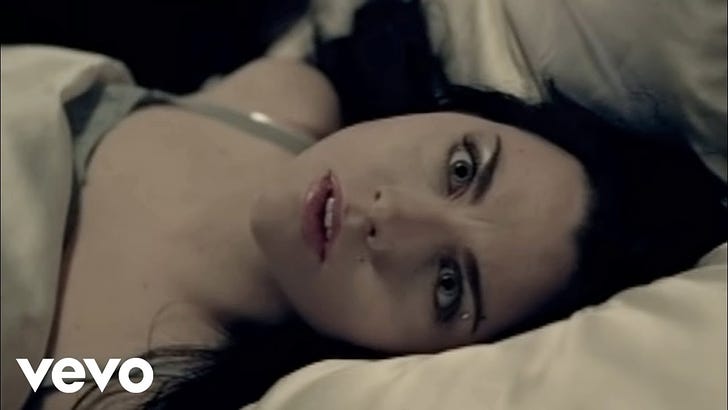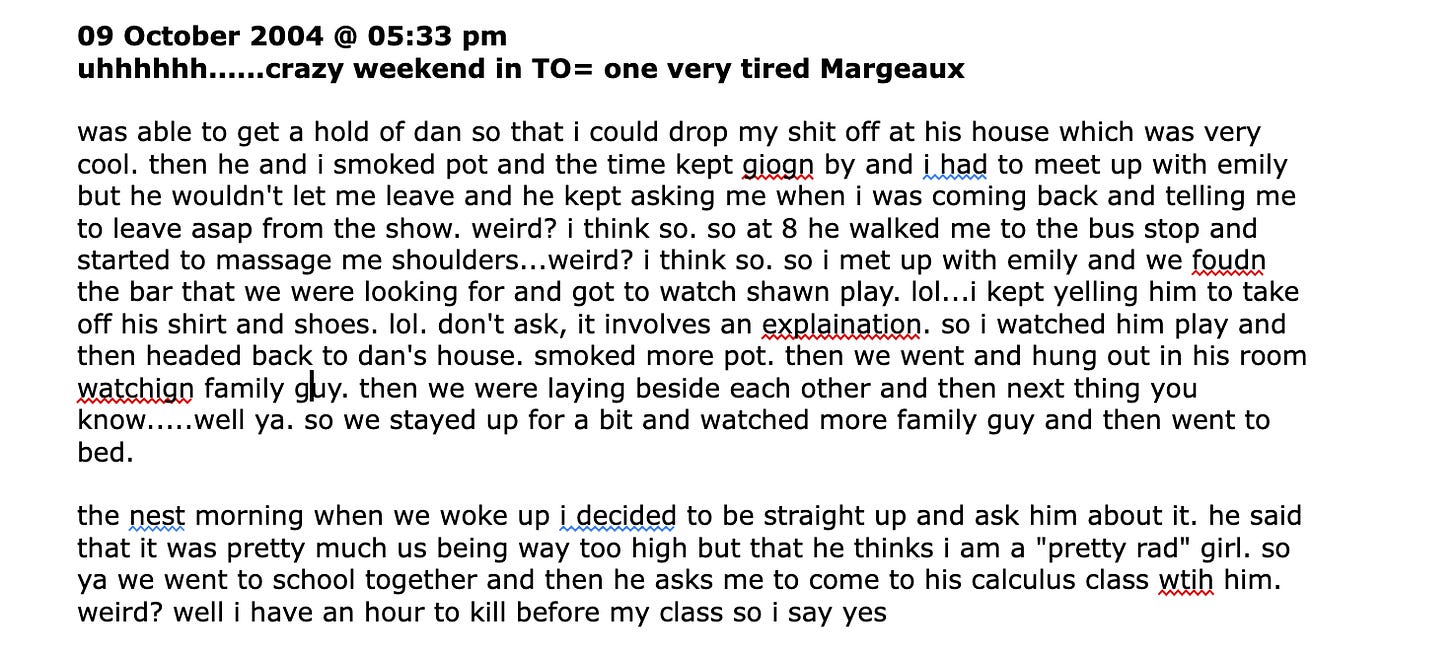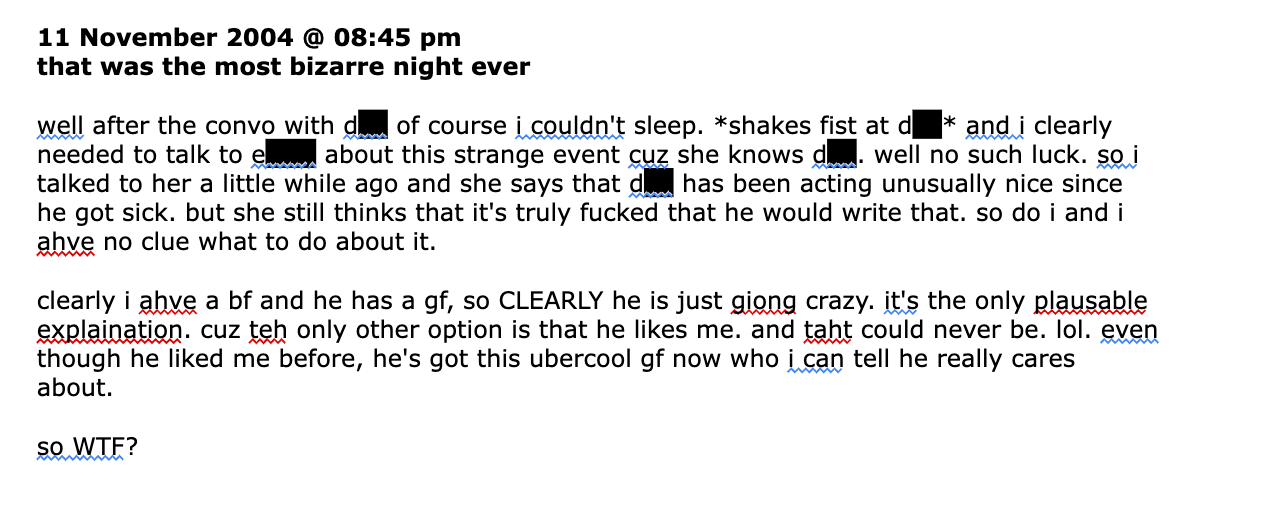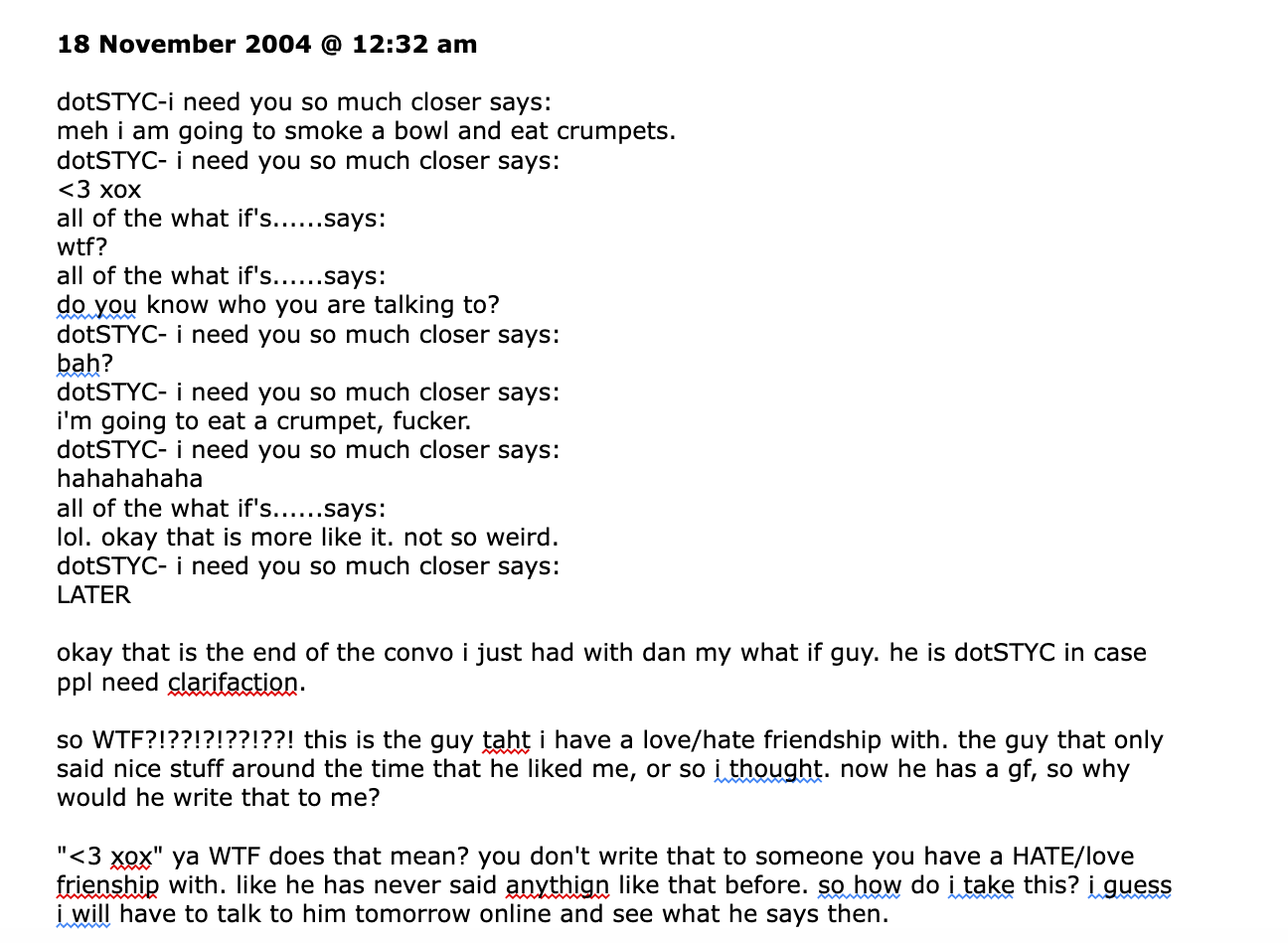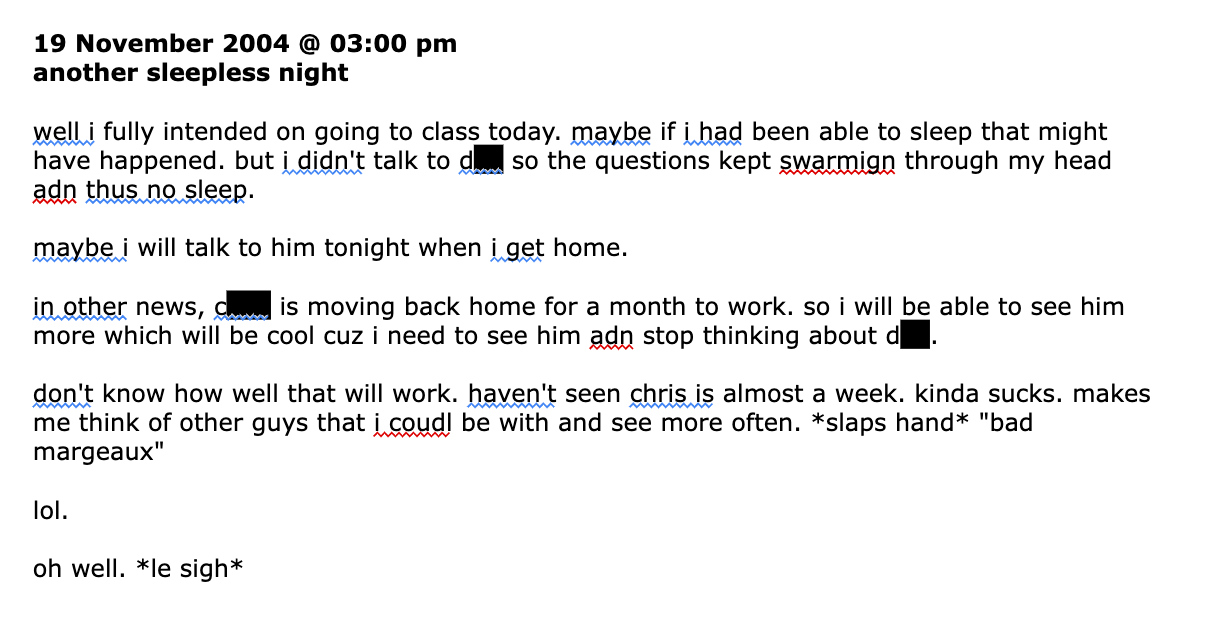Hello dear ones,
It’s the end of term for me in my MFA, which means I’m busy writing away on my thesis and coursework. So I wanted to share this new piece of writing with you, where I write about boys that’ve hurt me through songs that I associate with them. The essay is too long for substack, so I’m going to share part 1 this week, and part 2 next week.
Announcement re: some changes to paid subs for 2025
As you’ve heard me say before, I’m in a phase of my life where I’m really trying to making my living as a writer, and substack has been HUGELY helpful for that. I’ve been truly inspired by Cody Cook-Parrott, who continues to adapt their newsletter in ways that are supportive and nourishing. Here’s what Cody shared in a recent newsletter:
I thought a lot about what I would need to feel like I wanted to put even more value into my newsletter, and it is for a different monthly exchange between myself and readers. I don’t think people talk about this enough - what is the exchange that makes us feel honored for our work and our job.
On January 2, the monthly price of CARESCAPES will go from $5/mo to $7/mo. If you’ve been waiting to get a paid sub, this is a great time to do so.
Please note : this will not affect current paying subscribers - the rate that you signed up will remain.
A paid subscription gets you:
Subscriber-only posts and full archive;
Access the community chats to connect with me and other subs;
Monthly co-writing hangs, first Monday of the month.
xoxox
Margeaux
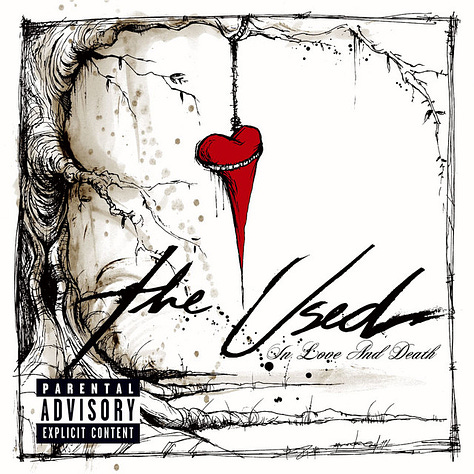
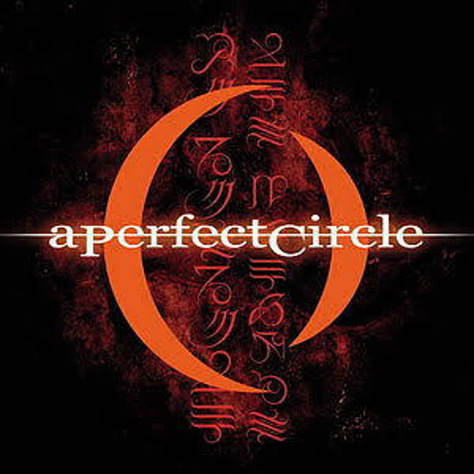
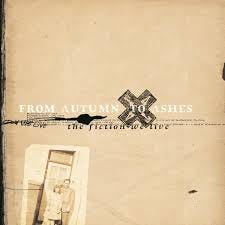
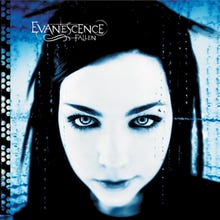

“The Fiction We Live (Autumn’s Monologue),” From Autumn to Ashes, 2003.
I’ve been trying to remember the login for my old LiveJournal for months. Though horrified at what I might find, I know that I’m ready to enter this archive. The email address I would’ve used circa 2003 is long gone, and I email LiveJournal to no avail. One day, I search for an old nickname I was given by my friend group in high school, and there it is: “Of Violence of Love and of Sorrow: Eyes of a Tragedy” appears before me.
I was impressed by the melodramatic poetry of my LiveJournal title – very on brand for eighteen-year-old me. As I scroll my way through 330 entries, I find songs attached to posts. And it is here that I find the source of the title: they’re lyrics from a song by the post-hardcore band From Autumn to Ashes: “The Fiction We Live (Autumn’s Monologue).” There are two versions of this song: Autumn’s version, sung by guest vocalist Melanie Wills of One True Thing, and “The Fiction We Live,” sung by FATA frontman Benjamin Perri. I prefer Melanie’s version.
When I look up the lyrics, it becomes clear why: Autumn’s monologue is about unrequited love, about believing that if you could just become a different person, you’d receive the love you so desired. The song opens with a question: “Oh, why can’t I be what you need? / A new improved version of me / But I’m nothing so good, no, I’m nothing… / Just bones, a lonely ghost burning down songs.”
I was never on the pulse of music, and so I must’ve learned about FATA through someone I knew. 99% of the time, this was a boy. When I read through my LiveJournal entries from that time, that person was D: the vegan, once-straight-edge boy in my mandatory science class. D had short brown hair, thick-framed glasses, and wore tight t-shirts, which exposed the traditional tattoos adorning his arms, and, of course, skinny jeans. But it was his cheekbones that really did it for me, reminded me of 90s and early 2000s heartthrob Josh Harnett. I immediately had a crush on him.
I find D all over my LiveJournal.
After D and I had sex, he began to pull away. I continued to chase him, as I was wont to do, despite the fact that D now had a girlfriend.
Shortly after my entries about D end, he transferred to a different school, and we began to lose touch. Memory of him fades away until I return to my LiveJournal twenty years later. An archive of my desire for all to see.
I also find my desire written all over the lyrics of “Autumn’s Monologue”: “Of violence, of love, and of sorrow / I beg for just one more tomorrow! / Where you hold me down, fold me in / Deep deep deep in the heart of your sins.” Forever in love with the bad boys, I wanted nothing more than to “break in two over you.” Always ready to disappear myself for love: “I’d break in two and each piece of me dies.” Unfortunately, this never worked: “you don't see me, you don’t.”
Every boy: an attempt to be seen. The ones who did terrified me. I ran away. How could I break in two if they were giving me what I so desired?
“Bring Me to Life,” Evanescence, 2003.
I was no longer in my raver kid days of modrobes, phat pants, and baggy hoodies, jungle music and happy hardcore. I’d traded it in for all black, an Emily the Strange hoodie with cat ears on the hood, Marilyn Manson and Evanescence. It was my last year of high school and I was crushing hard on C. Towering above me at 6’2 to my 5’1, always in black, rocking black eyeliner that would often result in boys calling him gay. I’d hang out with C in his bedroom and he’d grab his guitar and play Ozzy Ozbourne’s “Crazy Train” for me – except it really wasn’t for me; I would’ve much preferred he play something more decidedly romantic.
As usual, it was unclear what we were doing, me and this boy. I’d sit close to him on his bed, and he wouldn’t move away. But he also never made a move. Day after day, I logged into MSN chat and looked to see if he was online. Sometimes, I’d notice how his status would change to Away within seconds of me logging on. I told myself it must’ve been a coincidence.
One day, I decided it was time for a grand gesture, and I printed out lyrics from songs that made me think of him. I was going to make him a book of songs and collages. One of the songs was “Bring Me to Life” by Evanescence. Written by lead singer Amy Lee at age nineteen, this nu-metal song was inspired by a conversation with Josh Hartzler, the man who would later become Lee’s husband. Hartzler had asked Lee “Are you happy?” and this question opened up something inside of her.
In an interview with DAZED Magazine, Lee describes: “He just seemed to see right through me. It was like he was the only one who did and it affected me… the exposure was a shock but it felt good. He was an unknowing part of my emancipation.” And so the song opens with Lee asking, “How can you see into my eyes like open doors? / Leading you down into my core / Where I’ve become so numb.”
The song’s chorus is a call and response between Lee and guest vocalist Paul McCoy (record producers convinced Lee to bring McCoy on because they didn’t believe that the world was ready for the female-fronted band). McCoy’s contribution can be found inside the parentheses:
Wake me up inside
(I can't wake up) wake me up inside
(Save me) call my name and save me from the dark
(Wake me up) bid my blood to run
(I can't wake up) before I come undone
(Save me) save me from the nothing I’ve become
This was all I wanted: someone to wake me up from the numbness I felt. I had no sense of self. I was all nothing. At the same time, I wanted to be the one who awakens the other. A force that confronts them with their emptiness, and fills them up. C wouldn’t offer me either.
I presented him with the mixed-tape-as-lyric-book one day at lunch. It was a bold move, walking up to him as he sat in our cafeteria with his friends, and offering him this token of my desire-all-wrong. He merely looked down at my gift, and said “thanks” under his breath as he turned back around to his friends. I was mortified. We never spoke about it. Within a few weeks, C was dating my best friend.
“I Swallowed Hard Like I Understood,” 65daysofstatic, 2004.
I never met boys in bars. But one night, my best friend and I got into her car and drove from the suburbs into Toronto, to attend a cops and robbers themed dance party that turned out to be a Crystal Castles show. (We had no idea who they were, but in the years to come, we’d get major cool points anytime we told the story.)

